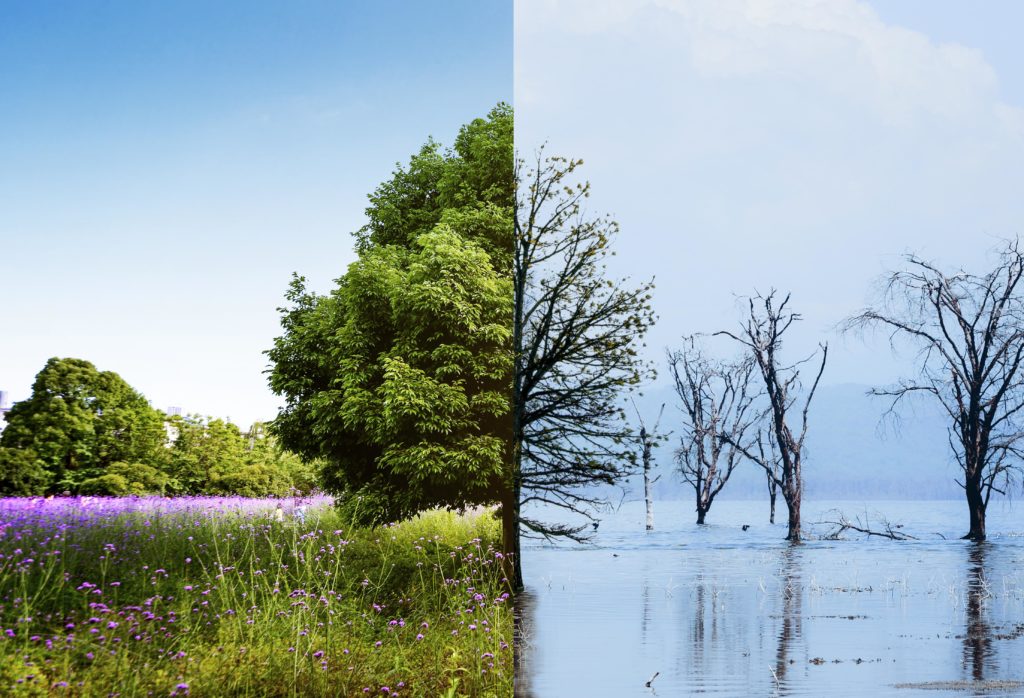The latest World Bank Country Climate and Development Report (CCDR) for Angola warns that as the effects of climate change worsen, it would be crucial for the country to use the money from its remaining oil wealth to invest in climate resilience and step up efforts to diversify its economy.
Without adaptation efforts, Angola’s gross domestic product (GDP) might decrease by up to 6% by 2050 as a result of climate impacts, which are expected to have a significant negative impact on both the country’s economy and population through the year 2060. The region of southern Angola that has been most severely impacted by extreme weather is currently going through what is being called the greatest drought in the country’s history.

The CCDR demonstrates that the water supply is projected to be more erratic and there will be more extreme weather events, which will pose problems to agricultural production and food security. Drought-related direct economic losses in agriculture could increase from as much as $100 million annually in the United States today to more than $700 million annually by 2100. The prevalence and severity of poverty, food insecurity, and child malnutrition are projected to increase significantly due to economic and climatic shocks and high levels of vulnerability to poverty.
The most promising non-extractive industries in Angola are very climate-sensitive and are already under more stress from climate variability, so this comes with one caveat.
Restructuring its fuel policies to release more public funding, mainstreaming climate into planning and fiscal management, and increasing private sector investment in renewable energy and climate-resilient infrastructure is necessary for Angola to realize its vision of resilient and inclusive development. Additionally, it will be necessary to enhance governance to direct the residual oil money toward boosting resilience and to mobilize more green and blue funding.
According to Carlos Katsuya, IFC Representative and Head of Mission for Angola, “increasing investments in climate change adaptation are essential for Angola’s sustained economic growth and the resilience of many of its firms.” To ensure that Angola develops a diverse, resilient, and inclusive economy that addresses climate change issues and supports jobs and growth, the private sector has a significant role.
By quantifying the effects of climate change on the economy and outlining a route to robust and climate-resilient growth, this CCDR, the first of its type for Angola, aims to help the nation’s efforts to accomplish its development goals despite a changing climate.
It outlines five routes for building an inclusive, diverse, and climate-resilient economy in Angola. The following are some of them: I managing water resources to produce clean electricity, plenty of food, and livable cities; ii) ensuring a green and climate-resilient power supply that includes hydropower, solar, and wind; iii) utilizing abundant arable land resources to become a hub for climate-smart agriculture and food production; iv) building green and resilient cities that can catalyze growth and job creation; and v) increasing human capital and fostering.
Concerning Country Climate and Development Reports (CCDRs)
The World Bank Group’s Country Climate and Development Reports (CCDRs), a new core diagnostic report from the World Bank Group, incorporate climate change and development issues. They will assist nations in setting priorities for the most effective interventions to lower greenhouse gas (GHG) emissions, increase adaptability, and advance larger development objectives. The primary approaches to reducing GHG emissions and climate vulnerabilities are identified in CCDRs, together with the associated costs and challenges, advantages, and opportunities, based on data and thorough research.
The studies offer specific, high-priority actions to aid in the resilient, low-carbon transition. As open documents, CCDRs seek to educate and facilitate engagement with the development and climate change agendas by providing information to governments, citizens, the private sector, and development partners. The Bank Group’s other core diagnostics, country engagements, and operations will benefit from the CCDRs’ input, which will also aid in securing finance and direct financing for high-impact climate action.
Visit World Bank to read the original article.
Source: Allafrica

